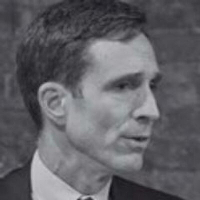|
by R.R. Reno June 7, 2021 I'm not inclined to hire a graduate from one of America's elite universities. That marks a change. A decade ago I relished the opportunity to employ talented graduates of Princeton, Yale, Harvard and the rest. Today? Not so much. As a graduate of Haverford College, a fancy school outside Philadelphia, I took interest in the campus uproar there last fall. It concerned "antiblackness" and the "erasure of marginalized voices." A student strike culminated in an all-college Zoom meeting for undergraduates. The college president and other administrators promised to "listen." During the meeting, many students displayed a stunning combination of thin-skinned narcissism and naked aggression. The college administrators responded with self-abasing apologies. Haverford is a progressive hothouse. If students can be traumatized by "insensitivity" on that leafy campus, then they're unlikely to function as effective team members in an organization that has to deal with everyday realities. And in any event, I don't want to hire someone who makes inflammatory accusations at the drop of a hat. Student activists don't represent the majority of students. But I find myself wondering about the silent acquiescence of most students. They allow themselves to be cowed by charges of racism and other sins. I sympathize. The atmosphere of intimidation in elite higher education is intense. But I don't want to hire a person well-practiced in remaining silent when it costs something to speak up. The traditional Islamic world exhibited a modicum of tolerance. Christians and Jews were dhimmi, allowed to exist, but on the condition that they accepted their subordinate role in society. While studying this arrangement, sociologists coined the term "dhimmitude," which refers to the mentality of those who have internalized their second-class status. Haverford, like Harvard and other top tier schools, graduates fine young people, no doubt many with well-adjusted personalities and sensible views of the world. But in the past decade, dhimmitude has become widespread. Normal kids at elite universities keep their heads down. Over the course of four years, this can become a subtle but real habit of obeisance, a condition of moral and spiritual surrender. Some resist. They would seem ideal for my organization, which aims to speak for religious and social conservatives. But even this kind of graduate brings liabilities to the workplace. I've met recent Ivy grads with conservative convictions who manifest a form of posttraumatic stress disorder. Others have developed a habit of aggressive counterpunching that is no more appealing in a young employee than the ruthless accusations of the woke. In recent years, I've taken stock of my assumptions about who makes for the best entry-level employee. I have no doubt that Ivy League universities attract smart, talented and ambitious kids. But do these institutions add value? My answer is increasingly negative. Dysfunctional kids are coddled and encouraged to nurture grievances, while normal kids are attacked and educationally abused. Listening to Haverford's all-college Zoom meeting also made it clear that today's elite students aren't going to schools led by courageous adults. Deprived of good role models, they're less likely to mature into good leaders themselves. My rule of thumb is to hire from institutions I advise young people to attend. Hillsdale College is at the top of that list, as are quirky small Catholic colleges such as Thomas Aquinas College, Wyoming Catholic College and the University of Dallas. In my experience, graduates from these sorts of places are well-educated. But more important, they've been supported and encouraged by their institutions, and they haven't been deformed by the toxic political correctness that leaders of elite universities have allowed to become dominant. Large state universities and their satellite schools are also good sources. In my experience, top-performing students at Rutgers are as talented but less self-important than Ivy Leaguers. They're more likely to accept the authority of those more experienced. This allows for better mentoring, which in turn produces better results over time. The biggest liability that comes with hiring graduates from places like Haverford and Harvard is that they have been socialized to panic over pseudocrises. Talk of systemic racism and fixation on pronouns inculcate in young people an apocalyptic urgency, a mentality that often disrupts the workplace and encourages navel-gazing about "diversity," "inclusion" and other ill-defined notions that are far removed from the main work of my organization, which is good writing, good editing and good arguments. A few years ago a student at an Ivy League school told me, "The first things you learn your freshman year is never to say what you are thinking." The institution he attended claims to train the world's future leaders. From what that young man reports, the opposite is true. The school is training future self-censors, which means future followers. Mr. Reno is Editor of First Things. |
 R. R. Reno |

